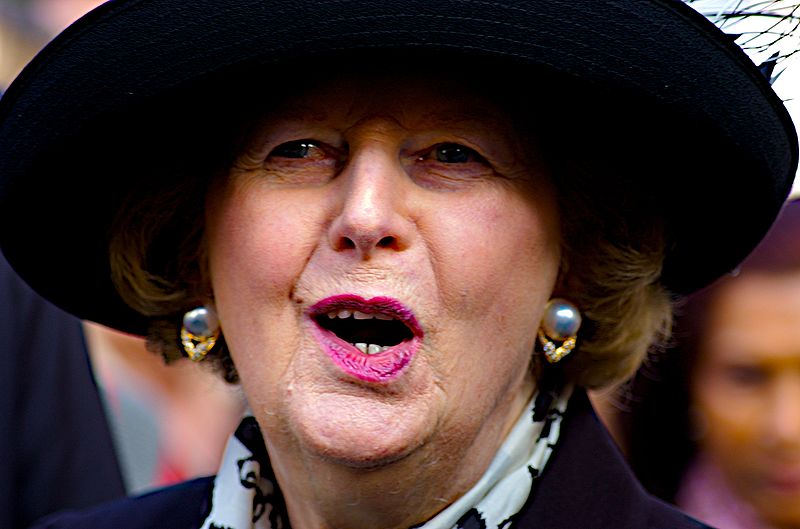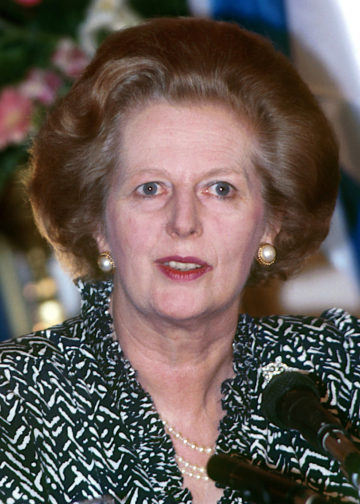Some view Margaret Thatcher as the embodiment of real “female empowerment,” which ought to be imitated by various women across the globe. She is one of the few females who managed to breach the patriarchal defenses and penetrate leadership roles deemed to be for male counterparts. The name ‘Thatcher’ entails a narrative of an individual who set an example for women who wish to assume higher offices within government institutions and contribute to the governing policies. To various citizens and loyal followers, she is a person who ushered her gender into a new social setup and stepped onto uncharted territory.

Early Life
Margaret Hilda Roberts was born to Alfred Roberts and Beatrice Ethel Stephenson on 13 October 1925 in Grantham, Lincolnshire. She was raised in Grantham with her family, and her father owned a grocery shop and a tobacconist. Alfred Roberts was an alderman and a Methodist local preacher who imparted this daughter’s religious practices and beliefs. Margaret was brought up as a Wesleyan Methodist who attended the Finkin Street Methodist Church [Source].
After getting a scholarship to study at Somerville College, Oxford, she later became an academic in chemistry and graduated in 1947. After completing her studies, she started working at BX Plastics as a research chemist. She joined the local Conservative Association in which she attended the party’s conference at Llandudno, Wales as a representative of the University Graduate Conservative Association. She later got married to Denis Thatcher, who was quite active in supporting Margaret’s political aspirations.
Political Career
Margaret was always interested in politics during her college studies and challenging specific policies that seemed unfair to other people. Her college colleagues cited politics as vital in driving human life forward, and it was a pertinent organ that was necessary to bring change to their communities. In her eyes, politicians were responsible for developing or destroying a nation, and she wanted to be part of that sector that could influence human life in a certain country.

She was named the Conservative candidate in the general elections of 1950 and 1951 for the Labour seat of Dartford but lost in two consecutive polls. In 1959, she won a seat as a member of parliament for Finchley. She got promoted to the frontbench as Parliamentary Under Secretary at the Ministry of Pensions and National Insurance by Harold Macmillan. After the loss of the Conservative election in 1964, she became the spokeswoman on Housing and Land and switched to become the Treasury spokeswoman. The Conservative party won the 1970 general elections, which saw Margaret appointed as the secretary of state for Education and Science.
Margaret kept on rising until she was Conservative Party leader and leader of the Opposition in 1975. She ended up as the UK’s Prime Minister on 4 May 1979, where she began intense work of establishing her legacy among the Britons.
The Legacy of Margaret Thatcher
As the founder of “Thatcherism,” Margaret Thatcher left behind a permanent print on the heart of politics and governance in the UK and across the globe. In describing the uniqueness of her achievements, the Guardian noted, “Several strong women on the continent have risen to the top, but this British woman, in Britain of all places, became a phenomenon, first, through her gender” [Source].
Her resume contains notable positions, including Shadow Secretary of State for the Environment, Shadow Secretary of State for Education and Science, 21st Chancellor of the College of William and Mary, and Member of the House of Lords in Lord Temporal. She made history by becoming the first female Prime Minister and the longest-serving person in that office. Britons view her legacy differently, with many opinions raised about her policies and how she implemented them.
June Purvis, a historian and professor of women’s and gender history of modern Britain at the University of Portsmouth, said, “She was a conviction politician, Thatcher. She believed she was always right, and that was her tremendous weakness”. She added that “Feminists do not like her because she didn’t introduce women-friendly policies. She had a very confrontational style of leadership. She liked arguments. She didn’t like consensus in any way” [Source]. The nickname “The Iron Lady” seems to tell it all that her conduct was a bit stern when ruling and might have been “driving through someone’s garden” just to make a point.
Thatcherism as an ideology changed the life of many British people, and it was centred on small states and a free market. The tenets dictated that “Rather than planning and regulating business and people’s lives, government’s job is to get out the way” [Source], and governments must focus on the essentials such as defending the country and dealing with the currency. In contrast, people handle themselves with personal choices taken. Thus, she rejected state ownership of businesses and “socialist planning.” To many people, this was a revolutionary stance which is dangerous. Other principles included monetarism which means “controlling the money supply with the high interest rate to term inflation,” low taxation, “privatisation of state-owned industries, rolling back the frontiers of the state, and huge sale to tenants of council housing.”
Professor Richard Toye of the University of Exeter alluded to how Thatcherism was “the Iron Lady’s style,” He explained that “She saw herself as a conviction politician. She prided herself on her – what she would call – steadfastness, and what others would call her inflexibility.” This is a major criticism by people who blame her for not considering the welfare of others and failing to consult before implementing Thatcherism rules of governance.
The social landscape of Britain was changed significantly by the Iron Lady, and The Guardian gave a run-down of her contributions to Britain, under an article titled “Margaret Thatcher: 20 ways she changed Britain” [Source]. The significant modifications of British life were on the transformation of London, privatisation, dissolving of trade unions, education reforms, revolution in homeownership, and transforming television.
She is applauded for allowing tenants to buy houses at low prices, reducing inflation, successfully handling the Iranian Embassy Crisis, implementing a free market economy in Britain, leading the county through the Falklands war, contributing to ending the Cold War [Source]. The standard personal achievement chanted throughout was how she managed to exert such an impact despite being a woman, proving that gender has no limitations to any progress in one’s life.
Her successors utilised some of her Thatcherism policies, and other contemporary politicians emulated her moves. Thus she made a name for herself among world leaders. The question of being a good or a bad leader is purely relative and subjective, but her contributions were visible to almost everyone. Others argue that no one can ignore the Iron Lady who changed Britain’s life single-handed and brought new ideas.
The pendulum of whether her efforts in Britain should be celebrated, assessed closely, or criticised depends on one’s perspective. But the overall view does adore her for breaking gender barriers and making a stand in the political arena. She also left a permanent sticker of memory in the British citizens’ minds showing how her legacy continues to live on even though she was a controversial leader and had controversial policies.







































